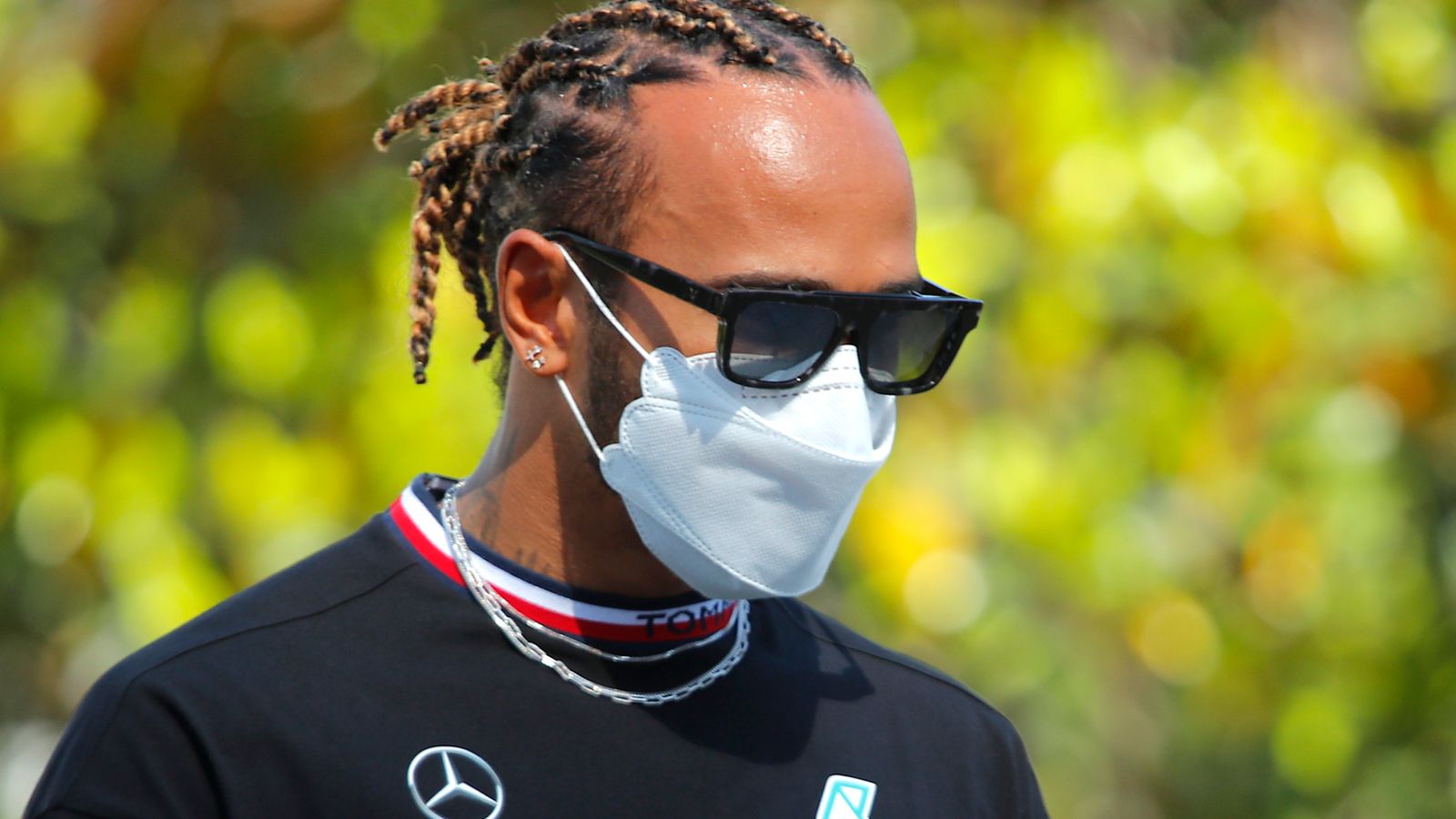Lewis Hamilton has come out in support of tennis player Naomi Osaka, after she spoke about the difficulties of facing the media while competing in top level sport.
World number two Osaka, 23, pulled out of the French Open after being told she would be kicked out if she kept avoiding journalists.
She had previously been fined $15,000 (£10,600) for missing two news conferences at the start of the tournament, citing mental health reasons.
Hamilton, who started competing in Formula One when he was 22, said more needed to be done to support young athletes.
Speaking ahead of the Azerbaijan Grand Prix in Baku, the reigning F1 champion said: “When I was young, I was thrown into the pit and I wasn’t given any guidance or support.
“And what I do know is that, you know, when youngsters are coming in, they’re facing the same thing as I did.
“And I don’t necessarily know if that’s the best for them.”
He added: “I think we need to be supporting more and I think it shouldn’t be a case where you’re pressured.
“For example, with Naomi’s scenario, she didn’t feel comfortable for her own personal health not to do something. And the backlash is ridiculous.”
Osaka said on social media that she suffered “huge waves of anxiety before I speak to the world’s media”.
Hamilton was also critical of the French Open organisers for the way they handled the situation.
He said: “The way they reacted was not good with the fine and someone talking about their personal mental health and then being fined for it, that wasn’t cool.
“I think they could have definitely handled it better, I’m sure. I hope they will take a deep dive into it and find a better way to navigate in the future.”
The Japanese player said she had suffered from long bouts of depression since her first Grand Slam win at the US Open in 2018, and also struggled with anxiety.
“Anyone that knows me knows I’m introverted, and anyone that has seen me at the tournaments will notice that I’m often wearing headphones as that helps dull my social anxiety,” she said.
While she has received support from some areas, other members of the sporting community have stated that dealing with the media is part of the sport.
Former UK number one seed Andrew Castle told LBC: “You shouldn’t sign up for the tour and go and play because it’s a part of the written obligations on tour that you speak to the broadcast media, because you would not be rewarded the way you are, and you wouldn’t be playing the sport you are playing if that whole infrastructure did not exist beneath the player.
“It’s not just about hitting tennis balls.”
And Billie Jean King, a 39-time Grand Slam winner, said: “While it is important that everyone has a right to speak their truth, I have always believed that as a professional athletes we have a responsibility to make ourselves available to the media.”






















